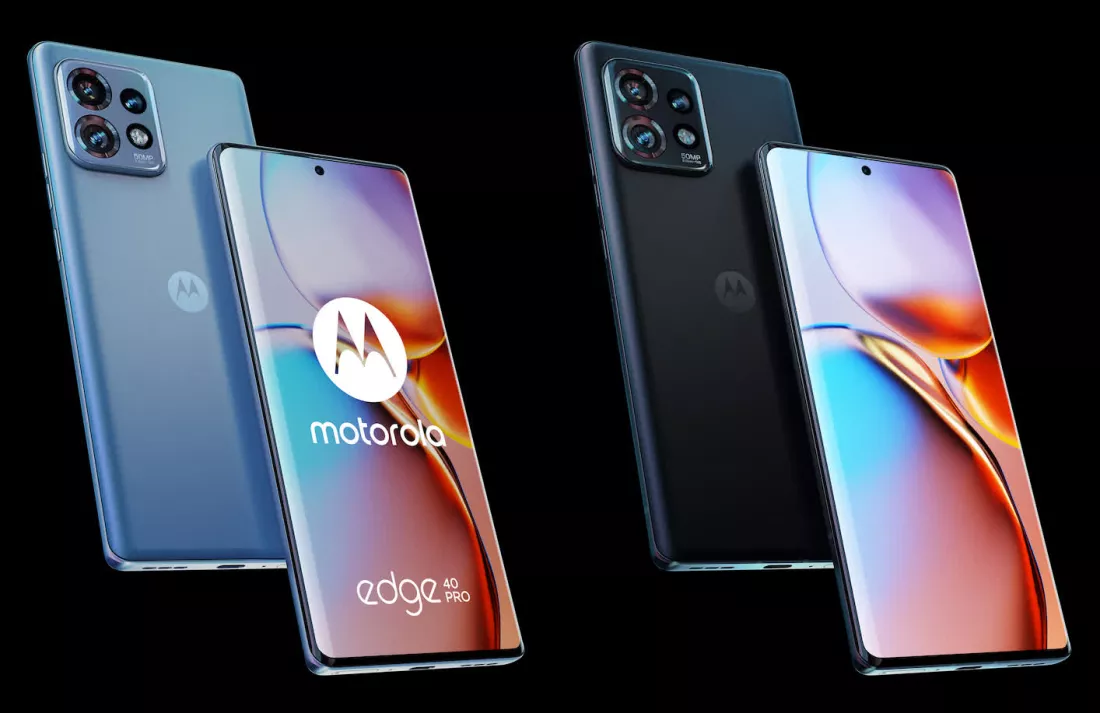n brief: Motorola has introduced a new flagship smartphone that could go toe to toe with some of the heaviest hitters in the industry. But first, it needs to tackle widespread availability as the handset is only launching in Europe and Latin America for now.
The Motorola Edge 40 Pro features a “borderless” 6.67-inch FHD+ (2,400 x 1,080, 394 ppi) pOLED display with a 165Hz refresh rate that employs a curved edge design and is coated in Corning Gorilla Glass Victus. Powering the display is a Qualcomm Snapdragon 8 Gen 2 chip, which Qualcomm claims delivers 35 percent faster CPU performance and 40 percent better power efficiency compared to its predecessor. The chip works alongside 12GB of LPDDR5X RAM and 256GB of UFS 4.0 storage.
Around back, you’ll find a triple camera system comprised of a 50-megapixel OIS shooter, a 50-megapixel ultrawide camera and a 12-megapixel telephoto lens that’s said to be ideal for portraits. Up front, Motorola has baked in a 60-megapixel selfie camera that uses Snapdragon’s Cognitive Image Signal Processor to apply AI enhancements that make photos look more true to life.
On the video side of things, the Edge 40 Pro can capture up to 8k resolution or in 4K HDR10+.
Motorola’s latest comes equipped with a 4,600mAh battery that can reportedly supply more than 30 hours of runtime on a single charge. With the company’s 125W TurboPower charging, you can get a 12-hour boost from a substantially depleted battery in just six minutes. A full charge from dead takes only 23 minutes. The handset also supports 15W wireless charging and 5W wireless power sharing.
The Edge 40 Pro carries an IP68 rating, meaning it can survive a dunk in up to 1.5 meters of fresh water for up to half an hour. It’ll ship running Android 13 with a Motorola skin on top.
The Motorola Edge 40 Pro is scheduled to go on sale in Europe and Latin America in the coming days starting at €899.99, or about $985. Motorola in its announcement said it is “also excited to share its commitment to expand the edge family in North America this year” which is a roundabout way of not directly addressing whether or not the handset is actually coming to the US in 2023.

